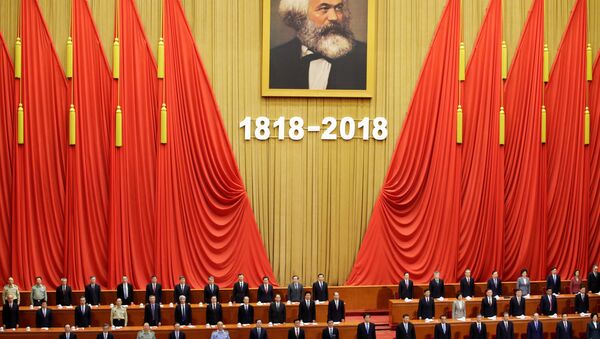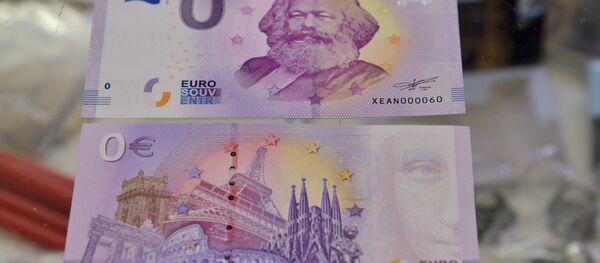Frank-Walter Steinmeier, delivering a speech in front of Chinese students, said that, even though the "havoc" that took place in Germany and Eastern Europe was inspired by Karl Marx, the philosopher stood for quite liberal values, such as freedom of the press.
"There is no doubt that Marx was a passionate humanist. He demanded freedom of the press, humane working conditions, universal education, political rights for women and environmental protection," the German president said, addressing students at Sichuan University.
Steinmeier, while accepting that Marx was a great intellectual, a highly influential philosopher, economist and sociologist, said that Marx was a "rather less successful educator and workers' leader".
He described those times as a period of families that were torn apart, neighbours pitted against each other and "people confined behind walls and people who attempted to flee murdered".
Continuing his speech, Steinmeier said that the fact that his country's history was marked by "dictatorship and repression…makes us [Germans] particularly sensitive to and aware of what happens to those who do not share the prevailing opinion, belong to an ethnic minority, want to practise their religion or campaign non-violently and peacefully for their ideas and beliefs".
"That is why we are worried and alarmed whenever personal freedoms are curtailed", he concluded.
READ MORE: Xi Hearts Karl: Chinese President Names Marx “Greatest Thinker of Modern Times”
On 5 May Karl Marx's birthday was celebrated in China. For his 200th birthday Beijing gifted a huge bronze statue of Marx to the small town of Trier near Luxembourg in western Germany — a move that sparked an ambiguous reaction by local residents.
READ MORE: China Chides Germany for Politicizing 'Friendly Present' on Karl Marx's Birthday



